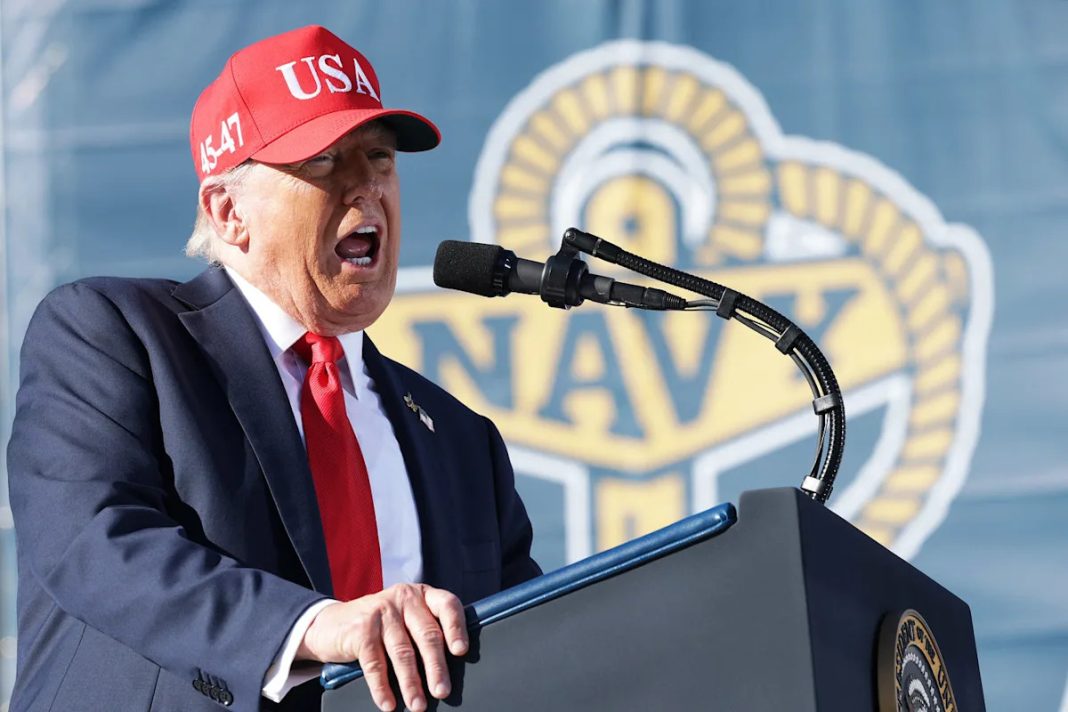Late Sunday, a federal judge appointed by President Donald Trump chastised the Trump administration for trying to undermine her order that the administration lacks the authority to call members of the Oregon National Guard into federal service. The address came after the Trump administration attempted to send federalized members of the National Guard from other states into Oregon.
If the administration’s efforts are ultimately successful, it would essentially lift all meaningful limits on a president’s ability to deploy federalized members of the National Guard against the wishes of a state’s elected officials.
This is just the latest example of Trump embracing a maximalist view of executive authority in almost every area of governance.
There should be no doubt that Congress granted presidents broad authority to federalize members of a state’s National Guard. A federal statute, 10 USC Section 12406, provides presidents with the authority to federalize members of the National Guard of any state when “there is a rebellion or danger of a rebellion against the authority of the Government of the United States; or the President is unable with the regular forces to execute the laws of the United States.” The key is determining when the predicate facts exist to allow a president to exercise this control.
In late spring, Trump federalized the National Guard in California, against the wishes of Gov. Gavin Newsom and many other elected officials. Trump made that decision against the backdrop of protests and riots in Los Angeles that occurred in response to immigration raids by Immigration and Customs Enforcement Agents. A three-judge panel of the Ninth Circuit essentially blessed Trump’s decision, finding that presidents enjoy broad discretion when determining whether they are able “with the regular forces” to execute federal law. This makes sense; unelected judges are loath to second-guess an elected president’s decision that he needs backup to execute federal law. This is generally true regardless of the political persuasion of the president who appointed that judge; two of the three judges on the Ninth Circuit panel were appointed by Trump, one was appointed by President Joe Biden, and their decision was unanimous.
But as we just learned when Trump again attempted to federalize a state’s National Guard in the face of local protests regarding ICE raids in Oregon, a president’s power to utilize his authority to call a state’s National Guard into federal service is not limitless.
Oregon pushed back, and district court Judge Karin Immergut, who was appointed by Trump, granted Oregon a temporary restraining order (TRO). Immergut concluded that the facts on the ground in Portland were “categorically different” from those in Los Angeles. She found that even though judges should generally defer to a president’s decisions in this area, “‘a great level of deference’ is not equivalent to ignoring the facts on the ground.” Immergut’s decision makes plain that there are still limits on presidential authority.
Simply put, Immergut found that conditions necessary to allow a president to exercise his authority were not present, and Trump could not call the National Guard in Oregon into federal service.
In apparent response to Immergut’s decision, the Trump administration then attempted to send the federalized National Guard members in California into Oregon, and later attempted to federalize the National Guard in Texas to be sent to the state. Thus far, that decision has not gone well for the federal government. Late Sunday, Immergut issued a new temporary restraining order which temporarily prohibits the administration from “deploying federalized members of the National Guard in Oregon.” In plain English, this means the Trump administration cannot attempt to circumvent Immergut’s original TRO by sending federalized members of the National Guard from any other state, or the District of Columbia, into Oregon. Why? Because the judge already concluded that the conditions necessary to federalize the National Guard in that state were not present.
Immergut sounded frustrated and incredulous during the emergency hearing she held late Sunday night. One of the judge’s first questions for the federal government was how the Trump administration’s actions were not in “direct contravention” of her original TRO. She pressed the federal government throughout the short hearing, asking whether there is any legal authority for the idea that a president can federalize the National Guard in one state and then bring them into another state, where a judge has concluded that there is no showing that they are necessary. The attorney representing the federal government essentially argued that there just wasn’t a lot of legal authority in this area because the statute the president is relying on is so rarely used.
The only thing that is certain is that the Trump administration will appeal Innergut’s TROs and argue both that it has the power to federalize the National Guard in Oregon, and that even if it doesn’t, it has the power to move federalized members of the National Guard from other states into Oregon.
If the Trump administration ultimately prevails in the courts, it will mean the safeguards put in place by Section 12406 have collapsed. Presidents would have free rein to send federalized members of the National Guard into any state. At that point, it would be up to members of Congress to draft a new law putting greater limits on a president, in the process increasing safeguards for the rest of us. Given that you are likely reading this piece in the midst of a federal government shutdown, the chances of Congress acting seem between zero and none.
This article was originally published on MSNBC.com

